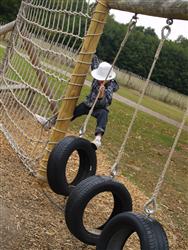This certificate is designed for people working with children or teenagers; or interested in a pursuing a career of working with youth.
What is psychology?
You might not be sure about what exactly psychology is. Psychology is a science. It is the study of human and animal behaviour. Some say the study of mind or the brain. Whilst others consider it to be the study of personality. Psychology considers what motivates people to do what they do.
This course is concerned with how a person develops throughout their childhood. Maternal  Behaviour and Attachment is just one interesting topic covered in the Child Development course.
Behaviour and Attachment is just one interesting topic covered in the Child Development course.
Maternal Behaviour and Attachment Formation
Many mothers would no doubt like to know exactly what maternal actions and attitudes will elicit a healthy degree of attachment in their children. Psychologists know that the failure to develop a healthy attachment to the caregiver can lead to all sorts of problems; among others it can lead to cognitive deficiencies, delinquency and anti social behaviour
The type of relationship we develop as an infant can continue to affect our relationships in the future. Many of the most successful psychotherapists base their methods of counselling on this belief. People become stuck in the same pattern of relating to others. Often this pattern was established in very early childhood, before our conscious memory.
It is designed to provide a foundation for understanding the mind of a child and the way it changes and develops as they grow toward adolescence and eventually adulthood